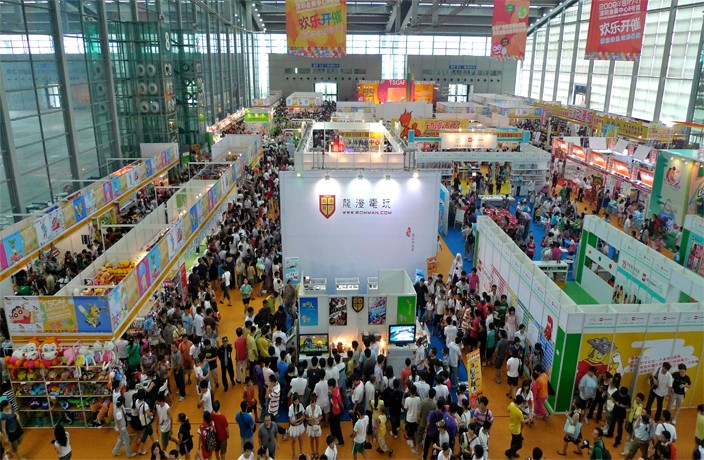What is the Current Analysis of the FMCG Industry?
The Fast-Moving Consumer Goods (FMCG) industry, encompassing products that are sold quickly at relatively low cost, is one of the largest and most dynamic sectors in the global economy. This industry includes a wide range of products such as food, beverages, personal care items, and household goods.
Let’s dive into the current state of the FMCG industry, using key insights and relevant keywords to provide a comprehensive overview.
Overview of the FMCG Industry

The FMCG industry is characterized by its rapid turnover and high consumer demand. Products in this category are essential and frequently purchased, making them staples in households around the world. The growth of the industry is related to multiples factors including population growth, urbanization, rising incomes, and changing consumer preferences.
Key Drivers of the FMCG Industry

Population Growth and Urban development
- The increasing global population, particularly in urban areas, drives demand for FMCG products. As more people move to cities, the need for convenient, readily available goods increases.
Rising Incomes
- With rising incomes, particularly in developing economies, consumers have more disposable income to spend on FMCG products. This increase in purchasing power fuels the growth of the industry.
Changing Consumer Preferences
- Consumers are becoming more health-conscious and environmentally aware, leading to a shift towards sustainable and organic products. FMCG companies are adapting to these trends by offering eco-friendly and health-oriented products.
Import and Export Business in FMCG
The FMCG industry is heavily reliant on import and export business activities. Companies involved in this sector often engage in global trade to source raw materials and distribute finished products. Understanding the nuances of import and export is crucial for success in the FMCG market.
Import and Export Business
- Import and export businesses are important in the FMCG industry by making easier the movement of goods across borders. These businesses make products available in markets where they are needed, helping to balance supply and demand.
Export licensing
- Companies involved in the import export business need to navigate various regulations and compliance requirements. This includes understanding trade controls and export control compliance requirements to avoid legal issues and ensure smooth operations.
China Import and Export Fair (Canton Fair)

One of the most significant events in the FMCG industry is the China Import and Export Fair, also known as the Canton Fair. This exhibition is a major platform for international trade, attracting thousands of exhibitors and buyers from around the world from foreign countries.
China Import and Export Fair (Canton Fair)
- The Canton Fair is in Guangzhou, China, and showcases a wide range of FMCG products. It’s an essential event for FMCG wholesalers and retailers looking to source new products and establish trade partnerships.
China Exhibition
- Exhibitions like the Canton Fair provide a unique opportunity for import food companies and FMCG goods wholesalers to network, discover new products, and negotiate deals.
Compliance in Import and Export
Compliance with export control regulations is critical for companies engaged in the import and export business. Understanding export control compliance requirements and managing export controlled items are essential for avoiding penalties and ensuring legal operations.
Export Control
- Export control refers to regulations that govern the export of certain goods, technologies, and services. Companies must adhere to these regulations on foreign trade to prevent unauthorized exports and protect national security.
EAR Compliance
- The Export Administration Regulations (EAR) are a set of rules that control the export of commercial items that could have military applications. Ensuring EAR compliance is crucial for companies to avoid legal issues and maintain their reputation.
Trade Partners and Market Access

The FMCG industry relies heavily on international trade partners. Understanding the top trading partners of the USA and other key markets can help companies navigate the global market and identify opportunities for growth.
Top Trading Partners of USA
- The USA has numerous trading partners, including China, Canada, and Mexico. These relationships are vital for the FMCG industry, providing access to a wide range of products and markets.
Key of a real Trading Partner
- Building strong relationships with trading partners is essential for the success of import and export businesses. Effective communication, trust, and mutual benefits are key components of successful trade partnerships.
Challenges in the FMCG Industry

Despite its growth and opportunities, the FMCG industry faces several challenges. These include regulatory hurdles, supply chain disruptions, and shifting consumer preferences.
Export Control Compliance
Ensuring compliance with export control regulations can be complex and time-consuming. Companies must stay updated with changing laws and implement robust compliance programs.
Trade Controls
Trade controls, including tariffs and import duties, can impact the cost and availability of FMCG products. Companies must navigate these controls to remain competitive.
Duty to America
Import duties imposed by the USA and other countries can affect the pricing and margin of FMCG products. Companies need to factor these costs into their pricing strategies. Compliance with department of state regulations is important.
Opportunities in the FMCG Industry

Despite these challenges, there are numerous opportunities for growth and innovation in the FMCG sector in goods and services.
Best US Exports
The USA is a leading exporter of FMCG products, including food and beverages. Identifying the best US exports and understanding their demand in global markets can help companies expand their reach.
Import Export Classes
Investing in import export classes can provide valuable knowledge and skills for navigating the complexities of global trade. These classes cover topics such as export control compliance, trade regulations, and international marketing strategies.
Conclusion
The FMCG industry is a dynamic and rapidly evolving sector with significant opportunities and challenges.
Companies in the import and export business must stay informed about market trends, compliance requirements, and trade regulations to succeed. Events like the China Import and Export Fair (Canton Fair) offer valuable opportunities for networking and discovering new products.
By understanding the trends of global trade and building strong relationships with trading partners, FMCG companies can thrive in this competitive industry.
Sphere Import Export is committed to staying at the forefront of the FMCG industry. Our expertise in import and export business, compliance, and market trends enables us to provide high-quality products and services to our customers.
Whether you are looking for a reliable FMCG goods wholesaler or seeking to navigate the complexities of global trade, we are here to help you succeed.
By staying informed and adapting to changes in the FMCG industry, we can continue to meet the needs of consumers and drive growth in this dynamic sector.
